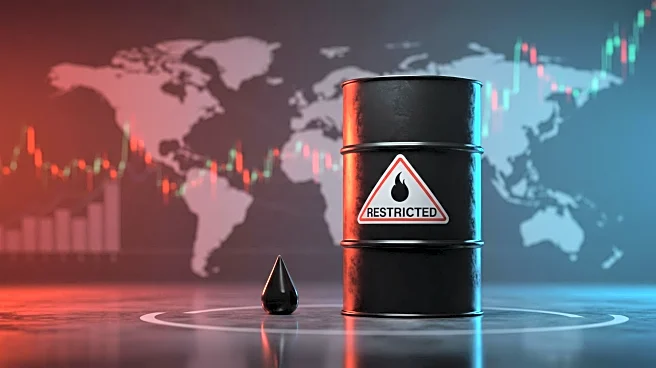What's Happening?
The United Kingdom has imposed sanctions on Iranian oil magnate Mohammad Hossein Shamkhani and four companies, citing their involvement in supporting Tehran's destabilizing activities in Ukraine and Israel. The sanctions include asset freezes and travel bans, targeting Shamkhani's network of container ships and tankers that facilitate the sale of Iranian and Russian oil globally. The Iranian embassy in London condemned the sanctions as unilateral and baseless. The U.S. had previously sanctioned Shamkhani, highlighting his role in Iran's overseas operations.
Why It's Important?
These sanctions reflect ongoing international efforts to curb Iran's influence and destabilizing activities. By targeting key figures and networks, the UK aims to disrupt Iran's ability to fund and support proxies and partners across the region. The sanctions also underscore the geopolitical tensions involving Iran, with implications for global oil markets and regional security. As Iran continues to face international scrutiny, these measures may impact its economic and diplomatic relations.
What's Next?
The UK and its allies may continue to monitor and sanction individuals and entities linked to Iran's destabilizing activities. The effectiveness of these sanctions in curbing Iran's influence remains to be seen, as Iran has rejected the allegations. Further diplomatic and economic measures could be considered to address the broader threat posed by Iran's activities, including potential impacts on global oil supply and regional stability.
Beyond the Headlines
The sanctions highlight the complex web of international relations and the challenges in addressing state-sponsored activities. They raise questions about the balance between economic interests and security concerns, as countries navigate the implications of targeting influential figures in global trade networks. The situation also reflects broader issues of international law and the enforcement of sanctions in a globalized economy.










